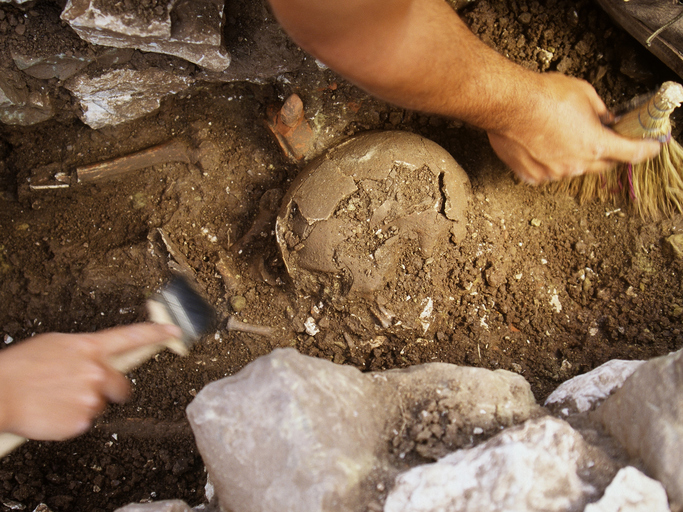Archaeologists discover a 194,000-year-old fossil that could rewrite human history


A free daily email with the biggest news stories of the day – and the best features from TheWeek.com
You are now subscribed
Your newsletter sign-up was successful
The commonly accepted history of humans is that our ancestors left Africa some 120,000 years ago. But a recent discovery in Israel may prove that idea wrong.
A study published in the journal Science reveals that archaeologists in northern Israel have found what they believe to be a nearly 200,000-year-old fossil belonging to an early Homo sapiens. The Los Angeles Times reported Thursday that the fossil was discovered just a few miles south of the Israeli city Haifa, in a cave that "probably served as a shelter for these hominids." The fossil is only a partial fragment of a mouth, but one scientist who snuck a peek at it told the paper that some of the relic's traits "clearly indicated it was Homo sapiens."
The discovery is significant because previously, no Homo sapiens remnants had been discovered outside of Africa that were more than roughly 120,000 years old, the study authors wrote. If the Haifa finding is in fact a fragment of a Homo sapiens skeleton, it would indicate that early humans left Africa much earlier than was previously thought. A paleontologist at the Smithsonian National Museum of Natural History explained that the discovery "leaves open the possibility that Homo sapiens ventured long distances but were not successful in taking up permanent residence in western or eastern Asia."
The Week
Escape your echo chamber. Get the facts behind the news, plus analysis from multiple perspectives.

Sign up for The Week's Free Newsletters
From our morning news briefing to a weekly Good News Newsletter, get the best of The Week delivered directly to your inbox.
From our morning news briefing to a weekly Good News Newsletter, get the best of The Week delivered directly to your inbox.
"This changes the whole concept of modern human evolution," said Israel Hershkovitz, the anthropology professor at Tel Aviv University who led the excavation. Read more at the Los Angeles Times.
A free daily email with the biggest news stories of the day – and the best features from TheWeek.com
Kelly O'Meara Morales is a staff writer at The Week. He graduated from Sarah Lawrence College and studied Middle Eastern history and nonfiction writing amongst other esoteric subjects. When not compulsively checking Twitter, he writes and records music, subsists on tacos, and watches basketball.
